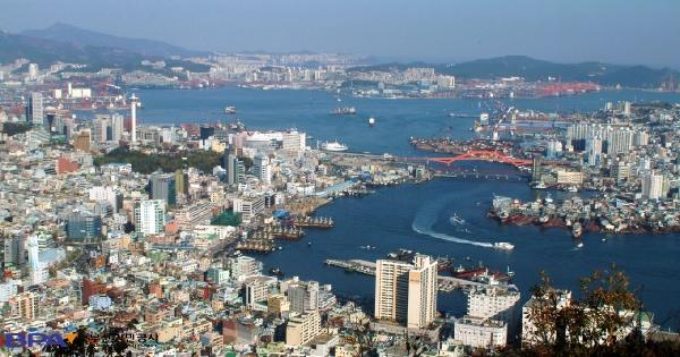HMM boosts capacity on PSX service amid surging exports to USWC
HMM has increased the capacity on its Pacific Southwest Express (PSX) transpacific service since volumes ...
TFII: SOLID AS USUALMAERSK: WEAKENINGF: FALLING OFF A CLIFFAAPL: 'BOTTLENECK IN MAINLAND CHINA'AAPL: CHINA TRENDSDHL: GROWTH CAPEXR: ANOTHER SOLID DELIVERYMFT: HERE COMES THE FALLDSV: LOOK AT SCHENKER PERFORMANCEUPS: A WAVE OF DOWNGRADES DSV: BARGAIN BINKNX: EARNINGS OUTODFL: RISING AND FALLING AND THEN RISING
TFII: SOLID AS USUALMAERSK: WEAKENINGF: FALLING OFF A CLIFFAAPL: 'BOTTLENECK IN MAINLAND CHINA'AAPL: CHINA TRENDSDHL: GROWTH CAPEXR: ANOTHER SOLID DELIVERYMFT: HERE COMES THE FALLDSV: LOOK AT SCHENKER PERFORMANCEUPS: A WAVE OF DOWNGRADES DSV: BARGAIN BINKNX: EARNINGS OUTODFL: RISING AND FALLING AND THEN RISING

The South Korean government has launched a major support package for the domestic container shipping industry.
“The strategy for becoming a leading maritime nation” was announced by the Ministry of Oceans and Fisheries (MoF) on 29 June, as HMM finalised orders for a dozen 13,000 teu ships.
The MoF said shippers among Korea’s small and medium enterprises could get freight subsidies of up to 20%, if they signed long-term shipping contracts.
Describing this as a win-win solution for liner operators and shippers, MOF said shippers would receive shipping services at subsidised rates for a significant period, with carriers assured of stable revenue.
On the same day, Korea Shipowners’ Association chairman Chung Tae-soon, also Sinokor Merchant Marine CEO, and Korea International Trade Association chairman Koo Ja-yeol signed a co-operation agreement. Mr Koo is also the chairman of LS Group, an offshoot of Korean chaebol LG Group.
The government, through local port authorities, also wants to acquire stakes in container terminals on the US west coast to reduce loading fees for domestic carriers HMM and SM Line, and to establish logistics centres in European hub ports, such as Barcelona and Rotterdam.
Acknowledging rising newbuilding prices and the difficulty in sourcing chartered ships, state-backed shipping bank Korea Ocean Business Corporation (KOBC) plans to acquire up to 10 vessels this year, and, by 2025, a fleet of up to 50. These will be fixed to liner operators on operating leases.
The MoF explained: “We’re helping local liner operators to secure tonnage and a low-cost structure to compete effectively with world-class operators. Operating leases can reduce the burden of vessel operations as, unlike standard bareboat charter hire purchase arrangements, the shipping company does not have to assume ownership of the ship, even after the contractual period is over.”
Separately, to support newbuilding orders KOBC and three other policy lenders, Korea Development Bank, Export-Import Bank of Korea (KEXIM) and Korea Asset Management Corporation, have formed a scheme to provide $1.5bn in ship finance, with a facility to raise this to $3bn.
And responding to rising container prices, KOBC plans to offer around $88m in container leases to local feeder operators, in addition to similar schemes issued by KEXIM.
The government expects that, by 2030, Korean liner operators will have at least 1.5m teu in capacity, contributing at least $62m to GDP.
Comment on this article